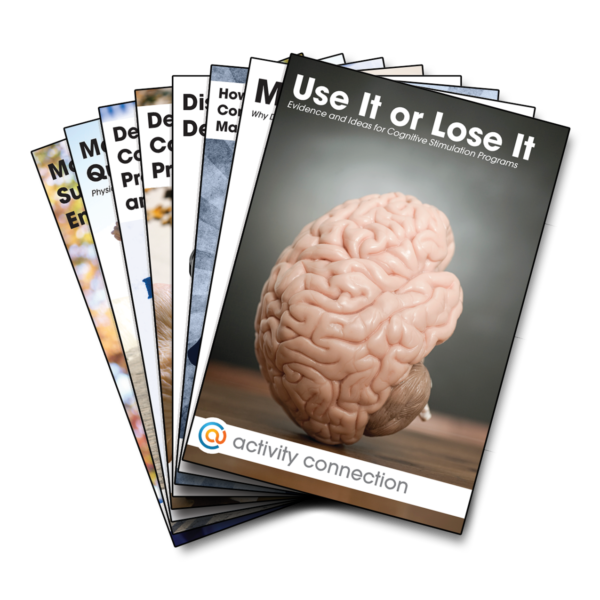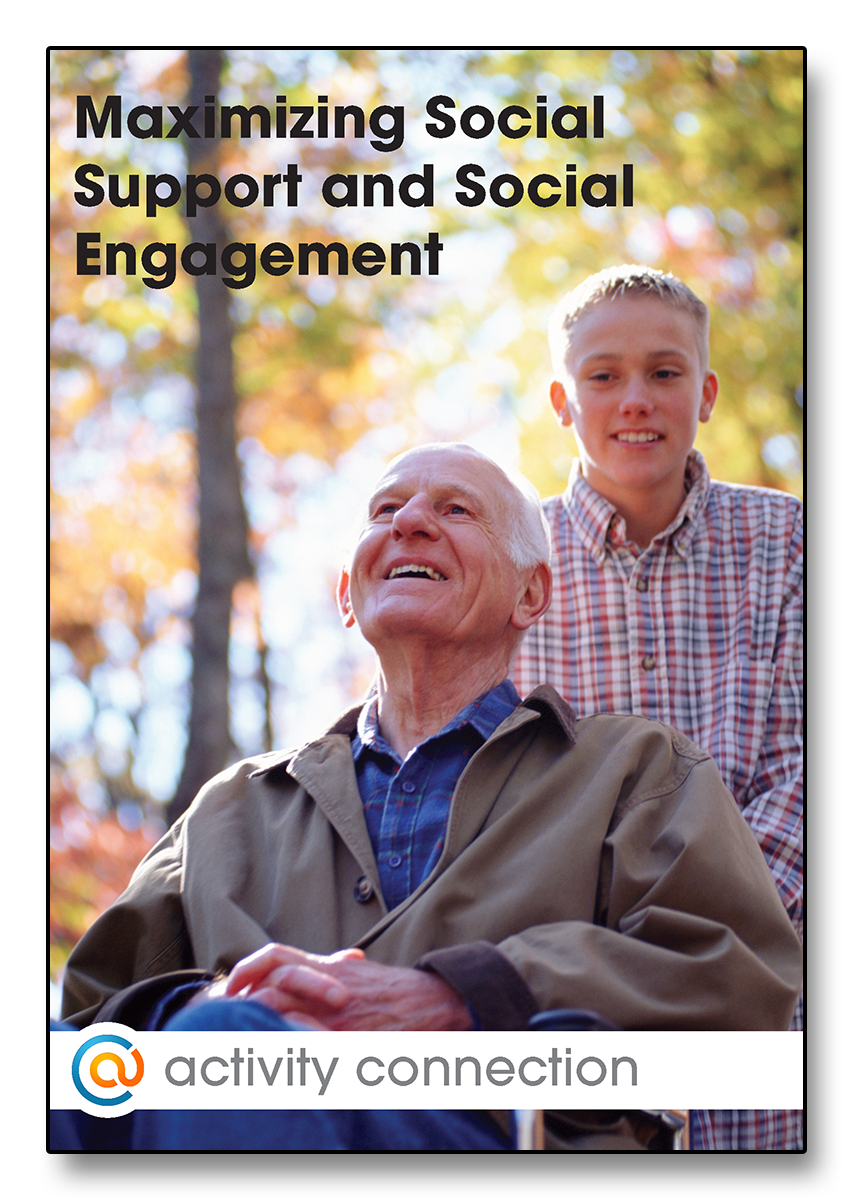Cognitive Stimulation Vol. 08
Volume 8: Maximizing Social Support and Social Engagement
In this presentation, you will learn how social support and loneliness are related to mental and physical health outcomes. You will learn many invaluable strategies to maximize social support and engagement among older adults in a variety of environments. These strategies can dramatically improve quality of life for many older adults.
Learning Objectives
- Better understand how perceptions of social support and loneliness can change during older adulthood.
- Better understand how perceptions of social support and loneliness can affect mental and physical health.
- Be able to describe numerous strategies to enhance perceptions of social support and decrease loneliness.
DVDs have been discontinued. This updated video is now available on the course test page.
Related products
Most recent products from this category

Cognitive Stimulation
Volume 5: Developing Your Own Cognitive Stimulation Program: The Activities In this presentation, you will learn how to use many different types of targeted cognitive stimulation activities. You will learn how to exercise executive functioning, word fluency, spatial memory, and other cognitive abilities. This video lecture will better prepare you how to offer a high quality cognitive stimulation program that can be varied to fit a wide range of cognitive abilities. Learning Objectives
- Be able to deliver word fluency and word generation activities.
- Be able to deliver a wide range of executive functioning activities.
- Be able to describe many different types of cognitively stimulating activities.

Cognitive Stimulation
This complete set of eight courses, is offered for $199.50, a discount of more than 1/3 when compared to purchasing the courses separately. After viewing the videos and passing the online tests, you will become a Certified Cognitive Stimulation Instructor. A certification like this demonstrates that you are on the cutting edge. Families will be comforted to know that you and your community care about their loved ones and their quality of life. People who complete the certification training and testing will be certified for two years. To become recertified, they just need to complete 3 hours of training and testing within the two years before their certification expires. DVDs have been discontinued. This updated video is now available on the course test page.

Cognitive Stimulation
Volume 7: Maximizing Quality of Life: Physical Exercise, Nutrition and Sleep Affect Memory Ability Matter In this presentation, you will learn how physical exercise, nutrition, and better sleep can maximize cognitive ability and quality of life. You will also learn strategies to motivate people to engage in these positive lifestyle behaviors. Older adults will benefit from your knowledge of these important factors. Learning Objectives
- Be able to describe how exercise affects cognition and what types of exercise affect which cognitive abilities.
- Be able to give advice as to how nutrition can aid cognition and overall health.
- Better understand the relationship between sleep and cognition and how sleep quality can be improved.

Cognitive Stimulation
Volume 6: Developing Your Own Cognitive Stimulation Program: Best Practices and Motivating People In this presentation, you will learn important principles to maximize the efficacy of cognitive stimulation and other activity programs. Essential topics such as screening potential participants, challenging more capable participants, size of classes, and frequency of classes will be discussed. You will also learn how to motivate participants to engage in cognitive stimulation programs and other activities. Learning Objectives
- Be able to screen potential participants to determine the appropriateness of a cognitive stimulation program and level of program difficulty that would be appropriate for a potential participant.
- Be able to describe optimal class size and frequency, as a function of class level, setting, and number of instructors.
- Know strategies to increase participants’ motivation to engage in activities.


